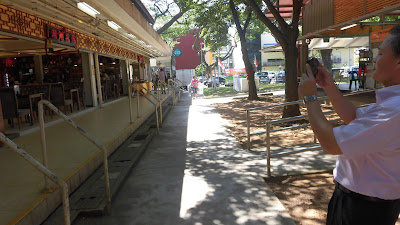With only 17,389 electors, Potong Pasir SMC is the smallest of the
13 Single Member Constituencies under the redrawn electoral boundaries
for the next GE. It encompasses Potong Pasir and Lorong 8 Toa Payoh and
is presently a PAP ward.
In my visits to this SMC, I have been warmly received by most of the
residents I met. They were candid about their political leanings and
would not hesitate to speak their minds about their present MP (who was
elected in GE 2011), Mr. Chiam See Tong (their former MP for 27 years)
and Mrs. Lina Chiam (who stood in her husband's place in the last GE but
lost).
Even in my house visits, many of the resident were more than happy to
invite me into their homes just to chat with me. I was even openly
encouraged to come and stand in their ward as an election candidate in
the next GE so that they may have more choices.
I can feel something special about Potong Pasir SMC. It has an air of
resilience and respectability. From the hawkers to shop-keepers to the
residents, the people are friendly and helpful. There's plenty of good
food and I feel a strong sense of nostalgia here. I had studied in St.
Andrews' School, and being here brings back to me fond memories of my
pre-university school days.
I like the feeling that Potong Pasir SMC gives me. If there is a
constituency where the electors can be counted on to stand up for what
they believe in, Potong Pasir SMC is unmistakably one.






